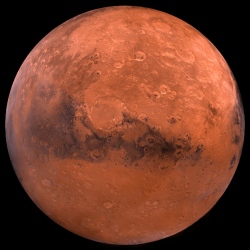
SpaceX continues to make progress on the BFR. During his State of the City address on Monday, the mayor of Los Angeles made it official: SpaceX will build the Big Falcon Rocket (BFR) at the Port of Los Angeles. "This vehicle holds the promise of taking humanity deeper into the cosmos than ever before," Eric Garcetti added on Twitter.
The mention of SpaceX during Garcetti’s speech confirmed widespread speculation about SpaceX’s 30-year lease of an 18-acre site at Berth 240 in the port. SpaceX plans to build a "state-of-the-art" industrial manufacturing facility at this port location on the water, near Long Beach, about 20 miles south of its headquarters.
“SpaceX has called the Port of Los Angeles home to our West Coast recovery operations since 2012, and we truly appreciate the City of Los Angeles’ continued partnership," Gwynne Shotwell, president of SpaceX, said in a statement. "As announced today by Mayor Garcetti, the Port will play an increasingly important role in our mission to help make humanity multi-planetary as SpaceX begins production development of BFR—our next generation rocket and spaceship system capable of carrying crew and cargo to the Moon, Mars, and beyond.”
The rocket company has already begun to move hardware into temporary facilities at the site, including a tooling that will be used to make carbon-fiber composites for the rocket’s upper stage, also known as the Big Falcon Spaceship. SpaceX intends to manufacture the BFR components beside the water for easy shipping to test sites and launch pads.
SpaceX has yet to disclose where it will test the massive booster, but it could begin preliminary "hop" tests of the rocket’s spaceship later this year or in 2019 at SpaceX’s land in south Texas, near Brownsville.
The aerospace community has had a mixed reaction to SpaceX’s ambitious plans to build the BFR as a means for colonizing Mars. NASA has ignored the BFR in all of its planning for human exploration and the launch of deep space missions, such as a lander to Europa, preferring to focus on its own heavy-lift booster, the Space Launch System. Other industry officials have scoffed at the audacity of a private company launching humans to another world.
And yet, company founder Elon Musk heard such dismissals before when he sought to develop the Falcon 1, Falcon 9, and Falcon Heavy rockets. All subsequently flew. These moves toward manufacturing the BFR alongside bullish comments by Shotwell, who tends to be more sober than Musk in her predictions about future operations, suggest the company is undaunted by the criticism.
